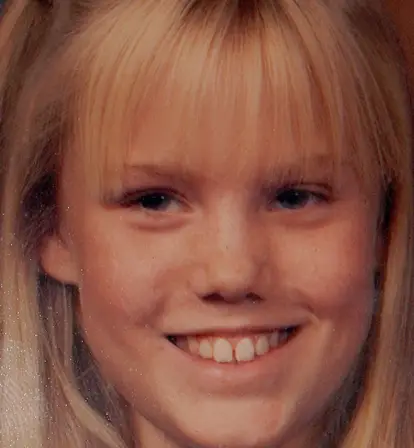When she was 11, Jaycee Dugard was kidnapped on the way to school in Lake Tahoe by Phillip and Nancy Garrido and was held captive for the next 18 years until her miraculous rescue in 2009.
On June 10, 1991, 11-year-old Jaycee Dugard was abducted outside of her home in South Lake Tahoe, California. Despite several witnesses — including Dugard’s own stepfather — authorities had no leads as to who took her.
Assistance from the FBI brought them no closer to finding Dugard, and for nearly two decades, it seemed as if she would never be found.
Then, on Aug. 24, 2009, just over 18 years later, a man named Phillip Garrido visited the University of California Berkeley campus with his two daughters to inquire about hosting a religious event at the school. Unfortunately for Garrido, when UCPD conducted a background check on him, they discovered that he was a registered sex offender on parole for kidnapping and rape.
What’s more, Garrido’s parole officer was unaware he had children. Two days later, Phillip Garrido showed up for a parole meeting, bringing with him his wife Nancy, the two young girls, and a third young woman — and eventually, Garrido gave up the charade and confessed everything.
The two youngest girls were his children, but not to his wife Nancy. Rather, they were the daughters of the eldest girl, who went by the name “Allissa” and whom Garrido had kidnapped 18 years earlier and raped repeatedly. Her real name was Jaycee Dugard.
After 18 years in captivity, Dugard was finally free, and she would go on to tell the story of her time imprisoned by Garrido in the memoir A Stolen Life. Here’s everything you need to know about the kidnapping of Jaycee Dugard.
Who Are Jaycee Dugard And Phillip Garrido?
Before her kidnapping, Jaycee Lee Dugard was a typical little girl. She was born on May 3, 1980 and lived with her mother, Terry, and her stepfather, Carl Probyn. Carl and Terry Probyn had another daughter, Shayna, in 1990.
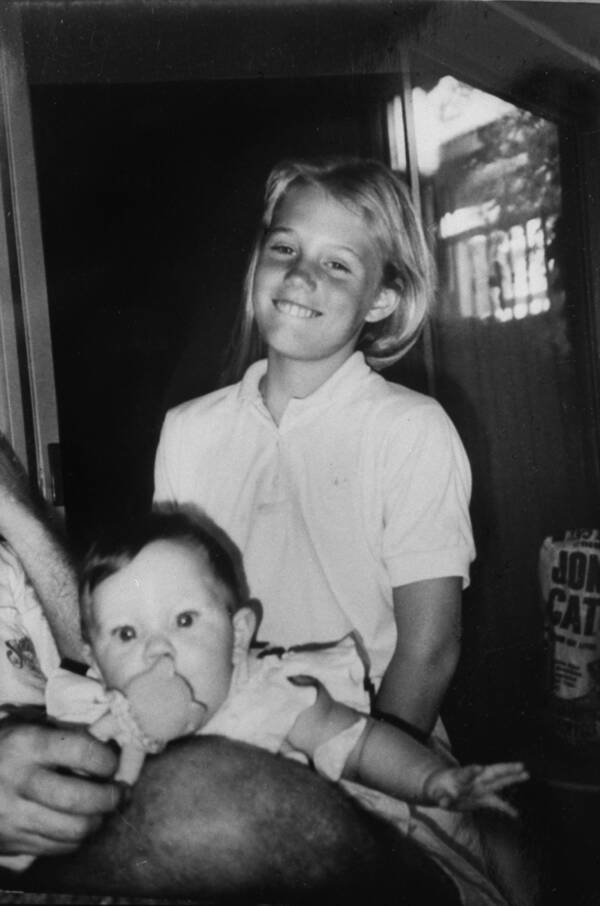
Kim Komenich/Getty ImagesJaycee Dugard and her baby half-sister Shayna.
The year after her little sister’s birth, Jaycee Dugard’s life would be upended when she was taken by Phillip and Nancy Garrido only yards away from her home.
Phillip Garrido, meanwhile, had a history of sexual violence. According to the El Dorado County District Attorney’s office, he’d already been convicted of several crimes by the time he abducted Jaycee Dugard.
In 1972, Garrido drugged and raped a 14-year-old girl in Contra Costa County. Four years later, in June in South Lake Tahoe, he convinced a 19-year-old to get in his car, then handcuffed and raped her. Later that year, in November 1976, he attempted to do the same thing to a 25-year-old woman, but she managed to escape and alert neighbors.
Just one hour later, Garrido lured another victim into his car and took her to a storage shed in Reno where he sexually assaulted her. This crime alone earned him a prison sentence of 50 years.
However, Garrido only wound up serving 11 years of that sentence. The parole board deemed that he could be certified “as not contributing to menace to health, safety and morals of society.” But months after his release, he visited one of his victims, who was working in South Lake Tahoe. He told her, “It’s been 11 years since I had a drink.”
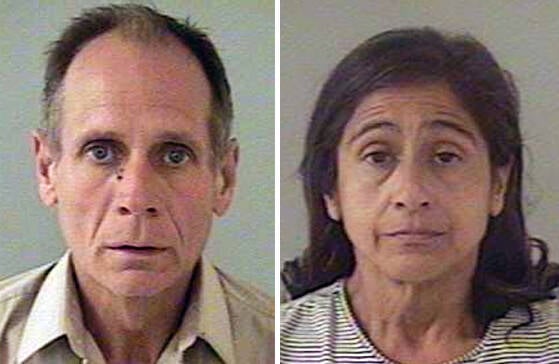
El Dorado County Sheriff via Getty ImagesPhillip and Nancy Garrido, who kidnapped Jaycee Dugard and held her captive for 18 years.
The victim reported this to Garrido’s parole agent — and the agent essentially brushed the incident off, noting in his file that “to subject (Garrido) to electronic monitoring would be too much of a hassle based on the hysteria, or concerns, of the victim.”
With apparently little regard being paid towards his actions, Phillip Garrido began to hunt for his next victim.
He found her on June 10, 1991.
The Abduction Of Jaycee Dugard
That morning, Carl Probyn dropped his 11-year-old stepdaughter off at the bus stop, only a few yards from the family’s home, expecting that it would be a morning like any other and that young Jaycee Dugard would soon be off to school.
Instead, two strangers grabbed the child and pulled her into their car. Probyn, still in his yard, saw this happen. He hopped on his bike and chased after the car — but he couldn’t keep up. They were gone, and the inconsolable stepfather alerted the authorities.
Unfortunately, initial searches led nowhere, and even dogs, aircraft, and the FBI couldn’t track Dugard down.
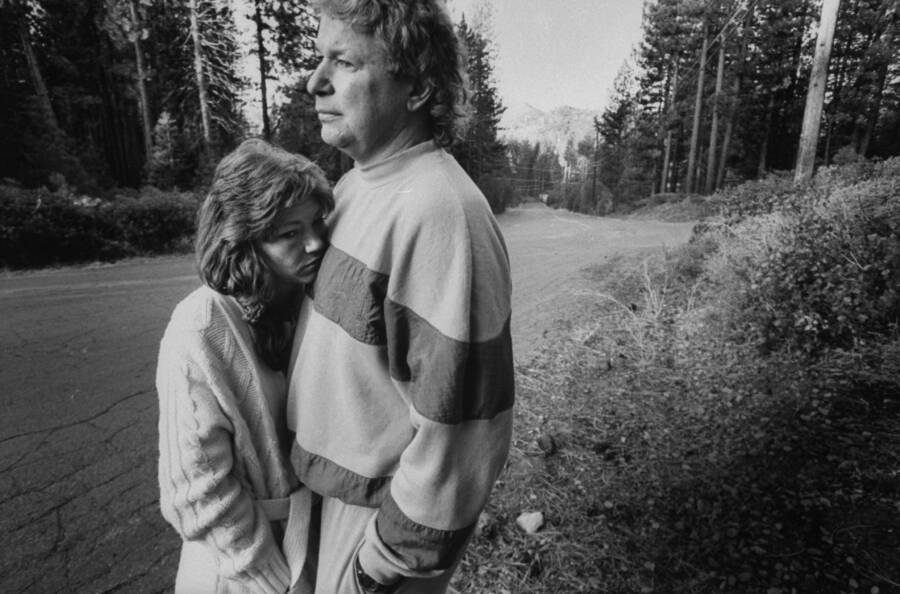
Kim Komenich/Getty ImagesTerry and Carly Probyn stand by the road where Jaycee Dugard was taken.
Probyn and Jaycee Dugard’s mother Terry split a few years after Dugard disappeared, with Probyn explaining that the stress of the kidnapping was what caused their marriage to unravel. Even years after Jaycee was found, Probyn struggled to come to terms with what happened that day.
“Looking back, maybe I regret I did not give her more hugs,” he said, speaking with the Daily Mail. “Terry’s family thought I was mean to her. I think they thought I was the reason Jaycee did not run away from the Garridos. But I can tell you now, I really cared for that girl.”
Life In Captivity
As authorities continued their fruitless search, Jaycee Dugard was being forced into her new life 170 miles away in Antioch, California, in a shack in the backyard of Phillip and Nancy Garrido’s home.
There, they began referring to Dugard as “Allissa,” and Phillip Garrido subjected the young girl to an ongoing series of rapes that resulted in two pregnancies: the first when Dugard was 14, the second when she was 17.
In both instances, she gave birth to a daughter, and the Garridos delivered the children without any medical assistance. Soon, Jaycee Dugard’s daughters were living with her in her backyard prison.
“It feels like I’m sinking. I’m afraid I want control of my life… this is supposed to be my life to do with what I like… but once again he has taken it away. How many times is he allowed to take it away from me? I am afraid he doesn’t see how the things he says makes me a prisoner… Why don’t I have control of my life!”
Jaycee Dugard kept a journal during her 18 years hidden away in Garrido’s backyard. She wrote about being afraid, lonely, depressed, and feeling “unloved.”
Initially, she wrote about her family and wondered whether they were looking for her. In time, however, her isolation and depression led her to crave any type of human interaction, even if it came from the Garridos.
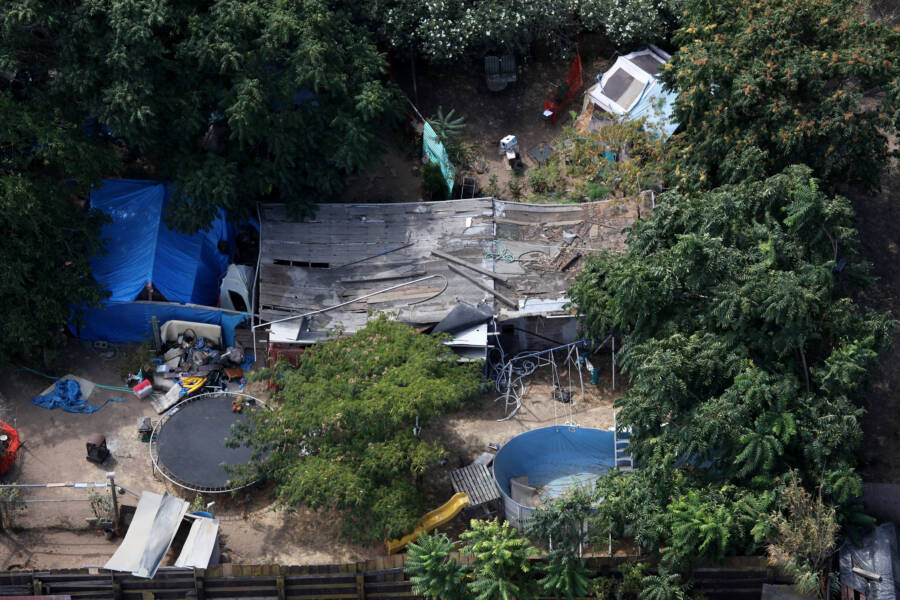
Justin Sullivan/Getty ImagesThe Garridos’ backyard, where they kept Jaycee Dugard in a small shack for nearly two decades.
When Dugard was eventually found alive after 18 years, she went through a long adjustment period, unfamiliar with what it was like to be loved or treated as a human being. When she published her memoir, A Stolen Life, in July 2011, she was also understandably critical of the parole agents who, for nearly two decades, never caught on to Garrido’s deception.
“Funny, how I can look back now, and notice how the ‘secret backyard’ didn’t really look so ‘secret,'” Dugard recalled. “It makes me believe no one cared or was even really looking for me.”
How The System Failed Jaycee Dugard — And How She Was Finally Saved
In August 2009, two UC Berkeley police officers, suspicious of Phillip Garrido, helped to finally solve the mystery of Jaycee Dugard’s disappearance. But a glaring question remained unanswered: How had Garrido’s parole officer failed to find Dugard in the backyard?
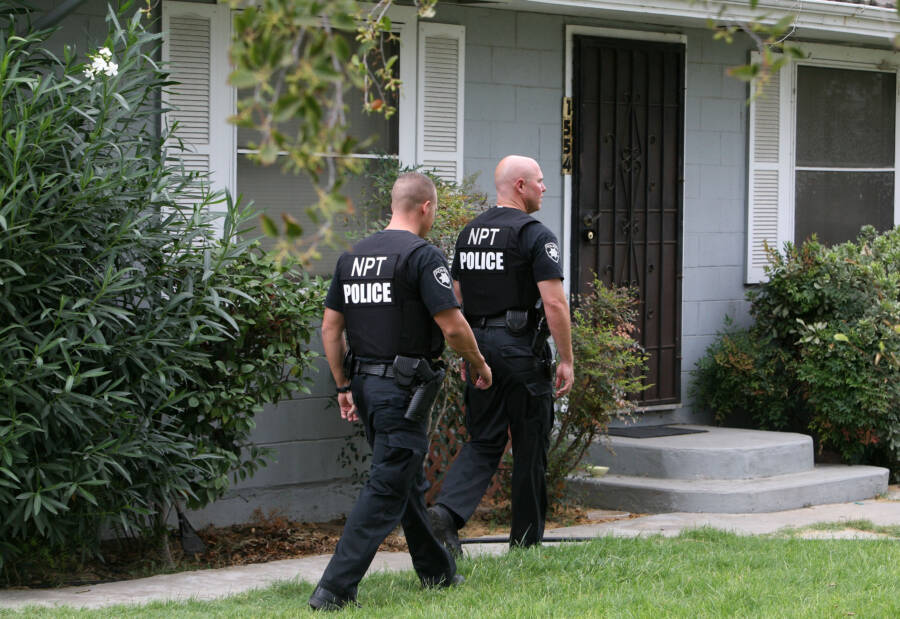
Justin Sullivan/Getty ImagesPittsburg, California police officers in front of the Garridos’ home as they search the property for additional evidence linking him to the murders of sex workers in the 1990s.
Naturally, the law enforcement system’s failure to find the missing girl, despite numerous check-ins with her captor, led to a significant amount of criticism. In particular, Garrido’s parole officer, Edward Santos Jr., was lambasted by the media.
In November 2022, Santos finally broke his silence on the case after 13 years.
“I searched the entire house and never found anybody else,” Santos said, per KCRA. “I looked in the backyard and it was a typical backyard. A typical backyard that was just, it wasn’t atrocious. It wasn’t well kept. A lot of debris and a lot of appliances left on the lawn, overgrown shrubbery and grass. Nothing unusual about that.”
It wasn’t until the incident at UC Berkeley that Santos was even aware Garrido had two little girls with him. But he maintained that he played a crucial role in finding Jaycee Dugard.
Santos said that after hearing about Garrido’s suspicious UC Berkeley visit, he visited Garrido’s home and asked about the two little girls who’d been seen with him. Garrido told him their father had picked them up.
“You know, I tell people the planets, the moon, the stars were all in perfect alignment that day,” Santos later recalled. “There were multiple times I could’ve just documented this and let it go, but I didn’t. I sit here and I think to myself, ‘If I just would’ve let it go, if I just would’ve let it be…’ But, I couldn’t have done that. On that particular day with those two little girls, I was their guardian.”
Santos instructed Garrido to come to the parole office the next day with the girls’ parents for further questioning. Instead, Garrido showed up with his wife, the girls, and Jaycee Dugard. And it wasn’t long before he confessed.
“He nods his head three times and says a long, long time ago, I kidnapped her and raped her when she was a child,” Santos said.
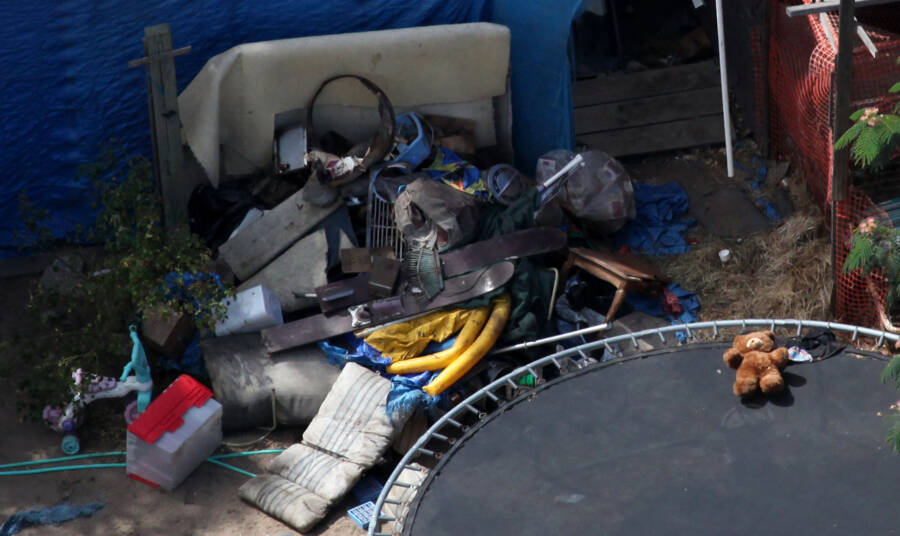
Justin Sullivan/Getty ImagesKids’ toys found among the debris in Phillip Garrido’s backyard.
Speaking indirectly to Dugard, Santos added: “I wish I would’ve been able to discover you being captive the first day I walked into that house. So, I am sorry for that. But, I did my job that particular day.”
Reclaiming A Stolen Life
Jaycee Dugard grew up in captivity, enduring 18 years of abuse and neglect at the hands of her captors Phillip and Nancy Garrido. Incredibly, Dugard has managed to turn her life around and move on from her imprisonment.
“My name is Jaycee Dugard, and I want to say that because for a long time I wasn’t able to say my name and so it feels good.”
In 2011, she published her first memoir, A Stolen Life, and founded the JAYC Foundation, an organization that provides support to families recovering from abductions and similar traumatic events. In 2012, she received the Inspiration Award at Diane von Furstenberg’s third annual DVF Awards at the United Nations.

Andrew H. Walker/Getty ImagesJaycee Dugard gives a speech at the Diane von Furstenberg awards, held at the United Nations on March 9, 2012.
In July 2016, she published a second memoir, Freedom: My Book of Firsts. She has appeared on numerous television programs and podcasts to discuss her experience in captivity, as well as her journey to recovery.
“There is life after something tragic happens,” Dugard says in her second book. “Life doesn’t have to end if you don’t want it to. It’s all in how you look at it. Somehow, I still believe that we each hold the key to our own happiness and you have to grab it where you can in whatever form it might take.”
After reading about Jaycee Dugard’s abduction and survival, read the story of Carlina White, who was abducted as a baby and then solved her own kidnapping 23 years later. Then, read the story of Sally Horner, the abducted girl who may have inspired Lolita.
